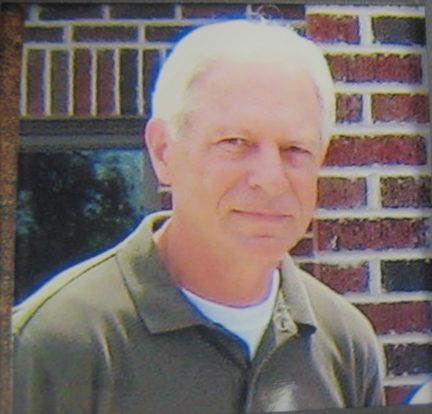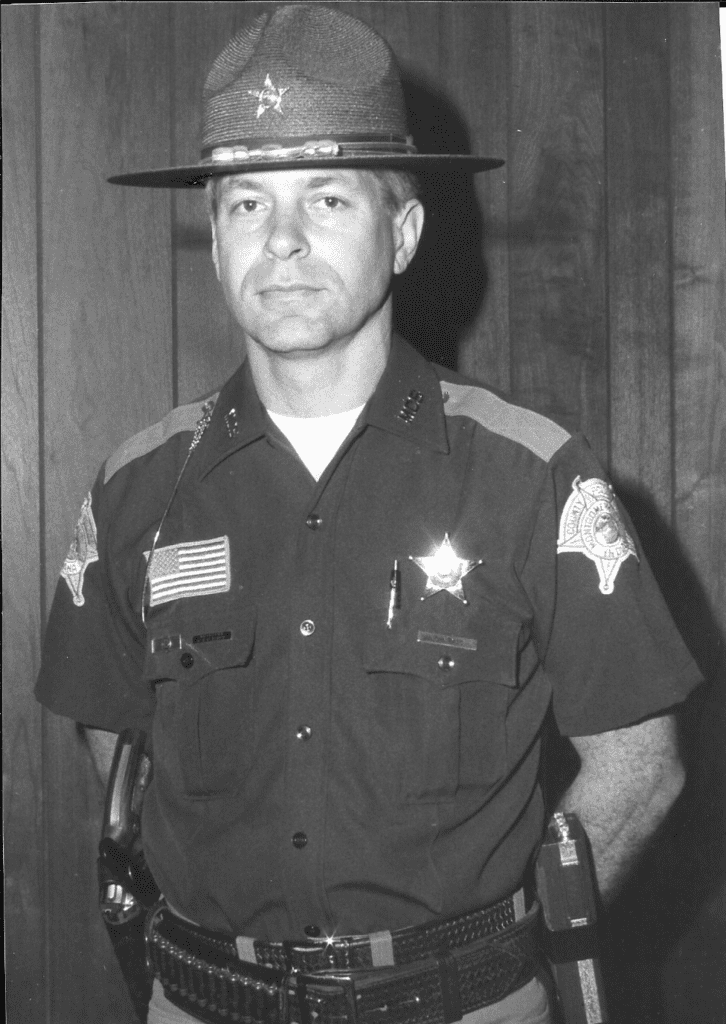Blog
Butch Remembers the Rookie Cop . . .


Here’s another incident I’ll never forget . . . As I came on duty one summer evening, the dispatcher advised me to check the location and status of an Indiana State trooper. The trooper, who was assigned to Tippecanoe County, had followed a suspected drunk driver into our county. When the trooper turned on his red lights, the driver had refused to pull over. There had been no further communication from the trooper for 10 minutes, until he activated the emergency call for assistance on his portable radio.
I drove my patrol car down the road where the trooper had last reported to be, and soon spotted his patrol car, with its red lights flashing, parked near a driveway at a farmhouse. As I pulled up to the lane, I saw the trooper standing in the yard, his duty weapon drawn and pointed at a nearby garage. He was literally trembling from head to toe. Not knowing the situation, I drew my revolver from my holster and kneeled down behind my car. But then as I edged forward, I could see a man, who appeared to be in his 20s, standing in the garage, grasping a rifle which was pointed a few feet ahead.
The trooper never said a word. His nerves had evidently got the better of him. However I noticed his uniform was soiled with dirt and grass stains, indicating to me that there had been a scuffle, with the man evidently having escaped the fight . . . and then grabbing the rifle from the garage. The trooper had the hammer drawn back on his semiautomatic pistol and was pointing it at the man. He was shaking so badly that I suspected he might pull the trigger and shoot the fellow at any time . . . whether he intended to or not. Now what?
I holstered my revolver and yelled to the man to put the rifle down. However, he refused and yelled out that if he was arrested, he would kill himself. He placed the muzzle end to his forehead and placed his thumb on the trigger. He wasn’t bluffing. The trooper was a rookie who had only been on the force for a couple of months. I told him to get back in his car, leave the area, and radio his dispatcher that he was OK . . . and tell them NOT to send any more officers to the scene. The man watched the trooper leave, but still kept the rifle to his forehead.
I said a silent prayer, lit up a cigarette, and walked to the garage. The man looked me straight in the eyes, “I am NOT going to jail!” to which I replied, “Don’t pull that trigger . . . get in my car . . . I am not going to arrest you . . . I’ll figure something out.”
He then sat in the front seat of my patrol car, with the rifle between his legs, aimed at his head, his thumb still on the trigger. For some reason I knew deep down that he would not harm me. I radioed my dispatcher that everything was under control so they would not send another officer. I had recalled an incident in Crawfordsville in which a teenager had threatened suicide, and had placed the muzzle end of a shotgun in his mouth. The responding officer called for backup. When they arrived, the boy pulled the trigger.
During my time as a police officer, I had been in two other situations like this . . . sitting next to a person who had a gun to his head, with his finger on the trigger. Each time the Lord protected me, with the person eventually handing over the gun. I talked to that man for the better part of an hour . . . chain smoking the entire time. Fortunately he listened and responded, which is always a good sign in those precarious situations. He related his many personal problems, which included the recent death of his mother, and admitted that he had an alcohol problem since high school.
So what happened? The young man agreed to voluntarily commit himself to an alcohol treatment facility that evening. He handed over the rifle, and I emptied the cartridges from the gun and locked it in the trunk of my car. After contacting the county judge and advising him of the situation, I transported him to a treatment center, where he received care and counseling for several weeks. He worked out his problems, got married, and never touched alcohol again.
And what about the state trooper? I never heard from him or saw him after this incident. Yes, he had successfully gone through the training at the police academy, but there are some situations which police officers face that are not part of the training. I heard from others that he resigned a few weeks later and obtained a “regular” job . . . a wise decision. Some people are just not cut out for police work. I’m sure you know a few like that. They are big talkers when two or three other officers are backing them up. One on one against a dangerous offender or faced with an emergency situation . . . they can’t handle it.
I quit smoking after I retired from the Sheriff’s department. It’s a nasty habit. But when I see someone light up nowadays, I often think about the many tense police situations in which I was involved. I hate to say this, but I was glad I had a pack of Marlboros during each of those encounters. One of Marlboro’s slogans was “Taste the adventure.”
Today I say, “Thanks, but I’ll pass.” I don’t need any more “adventures” like those.
John “Butch” Dale is a retired teacher and County Sheriff. He has also been the librarian at Darlington the past 35 years, and is a well-known artist and author of local history.
